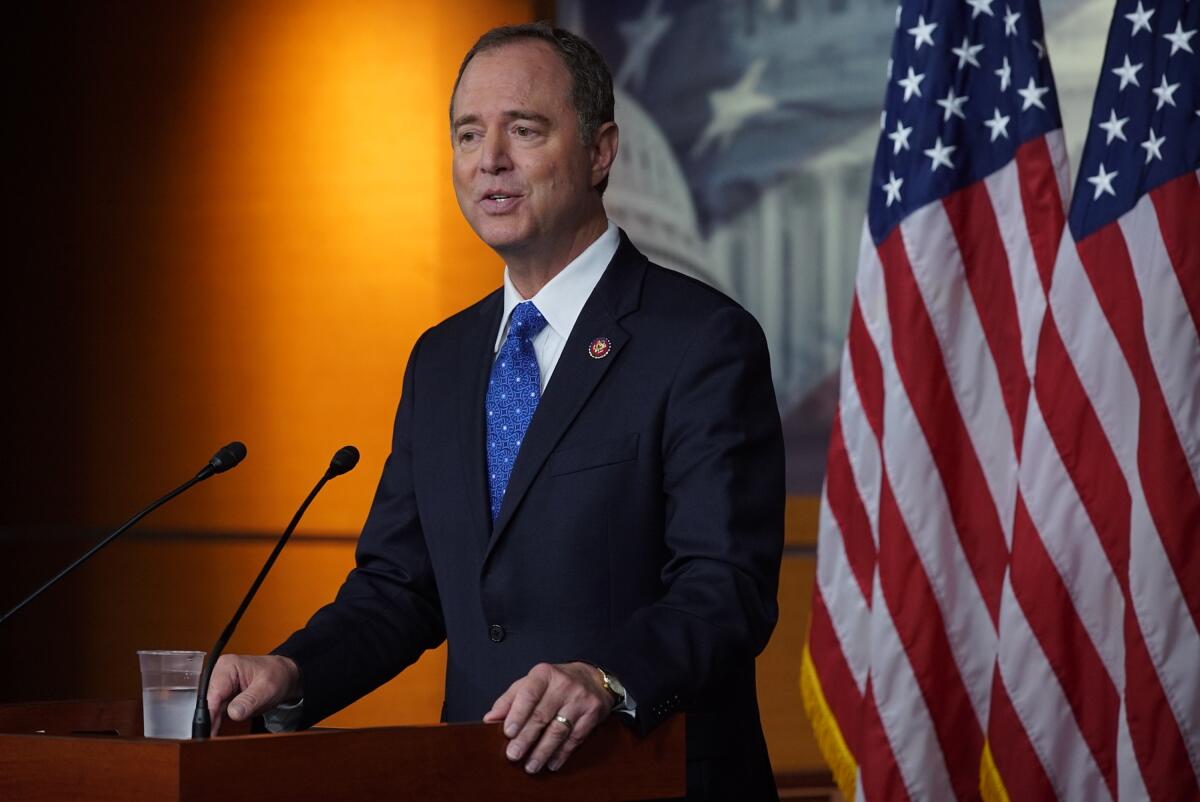Democrats pressure Hollywood producers to negotiate ‘in good faith’ with crew union

- Share via
Now the politicians are wading into Hollywood’s biggest labor fight.
A group of 120 U.S. senators and representatives including Rep. Adam B. Schiff (D-Burbank) and Sen. Alex Padilla (D-Calif.) has called on the Alliance of Motion Picture and Television Producers to resume bargaining with the union representing Hollywood crews.
In a letter to AMPTP President Carol Lombardini released late Thursday, the legislators urged the producers to negotiate with the International Alliance of Theatrical Stage Employees, which represents about 60,000 film and TV workers.
“Failure to reach an agreement would threaten not only the livelihoods of these workers, but also their family members who rely upon work in your industry, sending shockwaves throughout the U.S. economy and the industry,” they wrote.
The move comes as Hollywood technical workers prepare to vote on whether to allow union leaders to call a strike if they cannot reach a new contract with producers. Crews are pushing for better working conditions, including improved pay, benefits, rest periods and a greater slice of the profits from streaming productions.
The basic agreement between IATSE and the AMPTP ended July 31 but was extended to Sept. 10. This month, IATSE said the AMPTP would not counter its latest proposal and so was pursuing a strike authorization from its members.
A vote will start electronically Friday, lasting until Sunday, and results are expected Monday. Matthew Loeb, president of IATSE, told The Times on Thursday that he expects the vote to pass.
A representative of the AMPTP was not immediately available for comment.
So far the producers association has said that it has offered to make improvements to pay and other terms as well as cover an expected $400-million shortfall in the workers’ health and pension plan.
Are Hollywood crews ready to strike for the first time since 1945?
More to Read
Inside the business of entertainment
The Wide Shot brings you news, analysis and insights on everything from streaming wars to production — and what it all means for the future.
You may occasionally receive promotional content from the Los Angeles Times.












